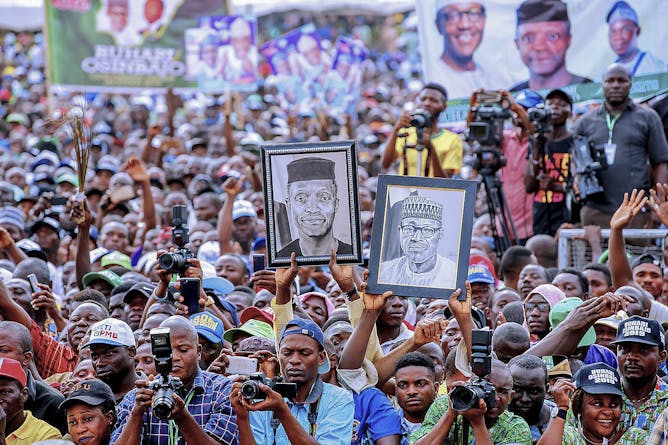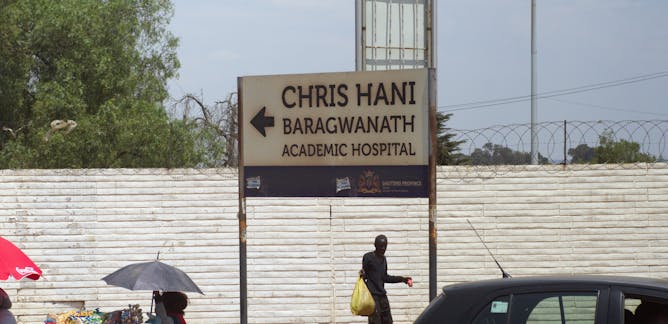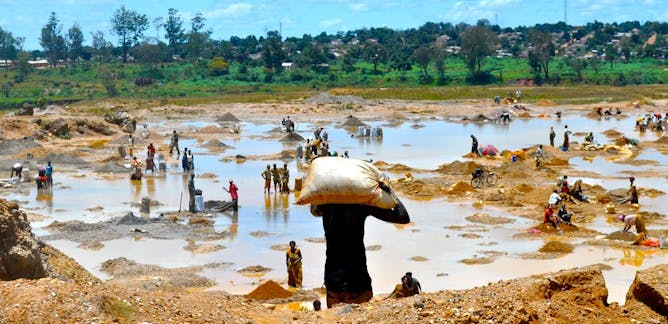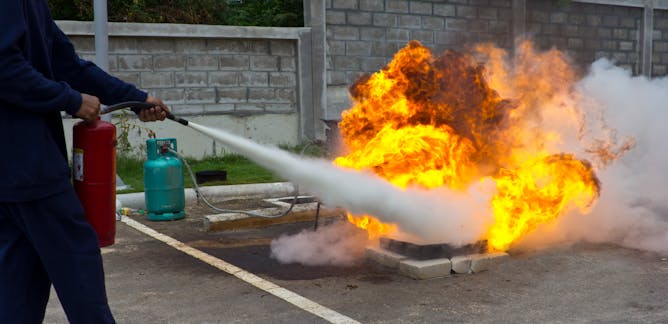|
The messaging and media sharing platform WhatsApp is ubiquitous in most African countries, Nigeria among them. So it makes sense that WhatsApp was a huge part of that country’s recent elections and the campaigns that preceded it. As Nic Cheeseman explains, there were both pros and cons to the platform’s extensive use.
A number of countries are moving to provide universal health coverage. But South Africa’s proposed National Health Insurance Scheme appears to be on shaky ground. A recent report revealed huge problems in districts where it’s been piloted. There’s another glaring weakness, argue Sasha Frade and Jo Vearey: it excludes care for migrants.
|

Supporters of Nigeria’s All Progressives Congress presidential candidate, President Muhammadu Buhari, at a rally earlier this year.
EPA-EFE/Stringer
Nic Cheeseman, University of Birmingham
In the recent Nigerian election WhatsApp was used to mislead voters in increasingly sophisticated ways. But it also strengthened democracy in other areas.
|
Politics + Society
|

Sasha Frade, University of the Witwatersrand; Jo Vearey, University of the Witwatersrand
Excluding international migrants from the public health care system can result in a population wide risk.
| |

Wim Delva, Stellenbosch University
Data science, led by Africa-based scientists, could play a key role in addressing all of the continent's crucial needs.
|
|
|
Business + Economy
|

Marijke Verpoorten, University of Antwerp; Nik Stoop, KU Leuven; Peter van der Windt, New York University
Artisanal and industrial mining have a different impact on local conflict in eastern Congo.
| |

Marie Blanche Ting, University of Sussex
South Africa's policymakers see a greater role for liquefied natural gas in the country's energy mix, reduce the country's over-reliance on coal and drive re-industrialisation.
|
|
|
From our international editions
|

Kellie Morrissey, Newcastle University; James Hodge, Newcastle University
Dementia villages and care homes that try and recreate the past are unsustainable.
| |

Simon Poulton, University of Leeds
Oxygen flooded the atmosphere for the first time and then ... nothing. Or so we thought.
|

Joseph Lanzafame, Rochester Institute of Technology
What exactly is inside those red fire extinguisher canisters, and does it work better than water?
| |

Bhaskar Chakravorti, Tufts University
There's no way an independent assessor will be able to actually monitor how Facebook might violate or abuse users' privacy in key ways.
|
|
|